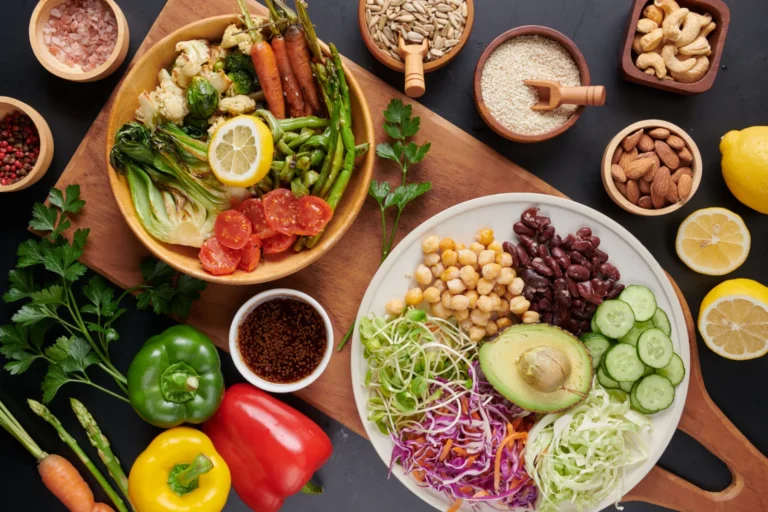
In our busy lives, it’s easy to make small nutrition mistakes that seem harmless but can quietly affect our energy, focus, and overall well-being. Whether it’s skipping breakfast, relying too much on packaged snacks, or misunderstanding what “healthy” really means, these everyday habits can add up over time. The good news? With just a few mindful adjustments, you can fix most of these mistakes and start feeling stronger, more balanced, and full of energy.
In this article, we’ll look at some of the most common daily nutrition mistakes people make — and how to easily avoid them for a healthier, more vibrant lifestyle.
Skipping Meals (Especially Breakfast)
One of the most common nutrition mistakes is skipping meals, particularly breakfast. Many people do it to save time or cut calories, but it can actually backfire. When you skip breakfast, your blood sugar levels drop, leaving you tired, irritable, and more likely to overeat later in the day.
Your body needs fuel after hours of fasting during sleep. A nutritious breakfast — like oatmeal with fruit, eggs with whole-grain toast, or a smoothie with greens and protein — kickstarts your metabolism and helps you stay focused. Even a small, balanced meal in the morning is better than running on empty.
If mornings are hectic, try preparing breakfast the night before. Overnight oats, boiled eggs, or pre-made smoothies are easy ways to start your day right.
Not Drinking Enough Water
Many people underestimate the importance of proper hydration. Your body needs water for nearly every function — from digestion and nutrient absorption to temperature regulation and brain performance. Yet, dehydration is a silent problem that can cause fatigue, headaches, and poor concentration.
It’s easy to mistake thirst for hunger, leading you to snack when your body actually needs water. A simple way to stay hydrated is to drink a glass of water first thing in the morning and continue sipping throughout the day.
If plain water feels boring, try adding lemon, cucumber, or mint for a refreshing twist. Aim for at least 6–8 glasses a day, and more if you’re active or live in a hot climate.
Relying on Processed Foods
Processed foods — such as chips, instant noodles, packaged snacks, and sugary cereals — are convenient, but they often contain high amounts of salt, sugar, and unhealthy fats. While it’s okay to enjoy them occasionally, relying on them daily can lead to nutrient deficiencies, energy crashes, and even long-term health issues like high blood pressure or diabetes.
Whole, unprocessed foods should form the foundation of your diet. Choose fresh fruits, vegetables, whole grains, lean proteins, and healthy fats as your daily staples. Cooking at home, even with simple recipes, gives you control over ingredients and portion sizes.
If you need quick options, look for minimally processed alternatives like roasted nuts, Greek yogurt, or whole-grain crackers.
Eating Too Fast
In our fast-paced world, it’s easy to rush through meals without realizing how much or what we’re eating. Eating too quickly prevents your body from recognizing when it’s full, which can lead to overeating. It also makes digestion less efficient, causing bloating or discomfort.
Slow down and pay attention to your food. Take smaller bites, chew thoroughly, and enjoy the textures and flavors. Mindful eating not only enhances your digestion but also helps you appreciate your meal, making it more satisfying.
Try setting aside at least 15–20 minutes for each meal. This simple shift can make a huge difference in your health and how you feel after eating.
Neglecting Protein Intake
Protein is essential for maintaining muscle strength, repairing tissues, and keeping you full between meals — yet many people don’t get enough of it. Skipping protein can lead to energy dips and cravings for sugary or processed foods.
Include a good source of protein in every meal. This can come from eggs, chicken, fish, lentils, beans, tofu, or nuts. Even small adjustments — like adding Greek yogurt to breakfast or chickpeas to your salad — can help balance your diet.
Protein also plays a key role in metabolism, making it an important nutrient for weight management and long-term health.
Overeating “Healthy” Foods
Just because a food is labeled “healthy” doesn’t mean you can eat unlimited amounts of it. Foods like nuts, avocados, and smoothies are rich in nutrients but also high in calories. Similarly, “natural” snacks or protein bars can still contain added sugars and fats.
The secret is portion control. Enjoy healthy foods mindfully, paying attention to serving sizes. Moderation ensures you get the benefits without consuming excess calories.
Reading nutrition labels can also help you identify hidden sugars, sodium, or artificial additives in seemingly healthy products.
Ignoring Fiber-Rich Foods
Fiber is crucial for digestion, heart health, and blood sugar control, yet most people don’t get enough of it. A diet low in fiber can lead to constipation, fatigue, and higher cholesterol levels.
Add more fiber-rich foods to your meals — such as vegetables, fruits, whole grains, beans, and seeds. Aim for around 25–30 grams of fiber per day. Gradually increase your intake and drink plenty of water to avoid digestive discomfort.
A balanced fiber intake not only supports gut health but also helps keep you fuller longer, making it easier to maintain a healthy weight.
Not Planning Meals Ahead
Lack of planning often leads to poor food choices. When you’re hungry and pressed for time, it’s tempting to grab the nearest snack or order fast food. Planning your meals in advance can save time, money, and stress while ensuring you eat balanced meals.
Try setting aside a few minutes each week to plan what you’ll eat. Prepare ingredients in advance, like washing veggies or cooking grains in bulk. Having healthy options ready makes it easier to stick to good nutrition habits.
Meal planning doesn’t have to be complicated — even simple strategies can make a big difference in your overall wellness.
Overlooking Portion Sizes
Even when eating healthy foods, large portions can add unnecessary calories. Portion control helps prevent overeating and supports a balanced metabolism.
A good rule of thumb is to fill half your plate with vegetables, a quarter with lean protein, and a quarter with whole grains or starchy foods. Eat slowly and listen to your hunger cues — stop eating when you’re satisfied, not stuffed.
Using smaller plates or bowls can also help naturally reduce portion sizes without feeling deprived.
Frequently Asked Questions (FAQs)
Q1: How do I know if I’m making nutrition mistakes?
If you often feel tired, bloated, or struggle with energy levels despite eating regularly, you may need to reassess your food habits and balance.
Q2: Can I still enjoy fast food occasionally?
Yes, occasional indulgence is fine. Just aim to make healthier choices most of the time and balance your meals with fresh, nutrient-rich foods.
Q3: How can I start eating better if I’m always busy?
Start small — pack healthy snacks, plan simple meals, and keep fruits or nuts handy to avoid processed options. Consistency matters more than perfection.
Q4: Is it necessary to count calories?
Not always. Focus on eating whole, balanced meals and paying attention to portion sizes instead of strict calorie counting.
Q5: How soon will I feel the benefits of better nutrition?
You might notice improvements in your energy, digestion, and mood within just a few days or weeks of making mindful changes.
Conclusion
Healthy eating isn’t about perfection — it’s about awareness. By recognizing and avoiding these common nutrition mistakes, you can dramatically improve your energy, mood, and overall health. Start by making small, sustainable changes: eat balanced meals, stay hydrated, and listen to your body’s signals.
When you choose nourishing foods and eat mindfully, your body responds with vitality and strength. Remember, every bite is an opportunity to care for yourself — and the more intentional you are, the better you’ll feel every single day.





